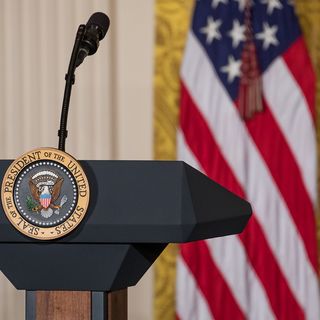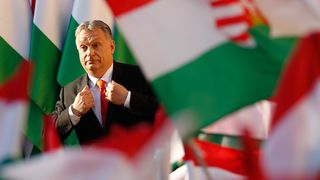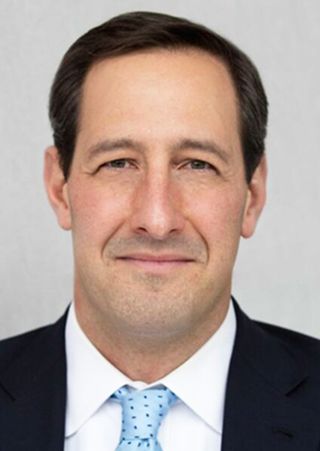“The authoritarian will in general select those who obey, who believe, who respond to his influence. But in doing so, he is bound to select mediocrities. For he excludes those who revolt, who doubt, who dare to resist his influence.” These words appeared in “The Open Society and Its Enemies,” Karl Popper’s 1945 attack on authoritarianism and defense of liberal democracy, one of the most influential works of the 20th century. Reading the book today is a vital reminder of how proponents of free and open societies can arm themselves, intellectually and spiritually, for the battle against repressive states seeking to strengthen authoritarianism and weaken democracy.
Popper began his book at a time when democratic leaders failed to stand up to rising authoritarian states. An Austrian philosopher who fled the Nazis for New Zealand, Popper decided to write the book in March 1938, on the day he “received news of the invasion of Austria” — the absorption of Austria by Hitler’s Germany. Concerned by the rise of both fascism and communism, Popper argued that history was a long-term battle between proponents of open dynamic societies and authoritarians who benefited from closed societies. He warned that the enemies of open societies were powerful and numerous, and cautioned that liberal democracies were rare, fragile and required extreme vigilance to maintain.
Trump and the US presidency: The past, present and future of America’s highest office

His message is once again relevant. Around the world, strongmen have staged a comeback. Hungary, Turkey and Venezuela continue their slide into authoritarian rule. Democratic norms have eroded in the Philippines and Poland. Myanmar, which had slowly began opening its system, has now executed an ethnic cleansing and jailed journalists covering it. Right-wing populists have gained traction throughout Western Europe.
And, perhaps most distressing from a long-term perspective, young people seem to be losing faith and interest in democracy. Popper warned that this type of slow-motion erosion of norms and institutions is just as dangerous as a full-blown crisis, and advised that trading political independence for the promise of prosperity and the illusion of stability would bring about the exact opposite.
From the beginning, democracy has fought against totalitarianism, Popper argued. In Athens, the birthplace of democracy, it faced a challenge from one of its most famous sons: Plato. While most people admire Plato as a promoter of an enlightened state, Popper suggested that a close reading of the Athenian philosopher’s great work, “The Republic,” revealed an authoritarian wolf masquerading as a democratic sheep.
According to Popper, Plato painted a portrait of an ideal, harmonious and peaceful society governed by enlightened philosopher-kings. In so doing, he held out the prospect of stability and certainty in a chaotic world with disruptive changes growing in magnitude and frequency. After all, who wouldn’t voluntarily choose peace and harmony? Who wouldn’t want the wisest to serve as leaders?
But Popper had a different take. He argued that Plato actually sought a totalitarian state with dictatorial and repressive impulses. Plato, in this telling, knew that he couldn’t mount an open attack on Athenian democracy. So instead, he co-opted certain words and concepts in order to subvert their meaning.
Anticipating George Orwell’s famous essay “Politics and the English Language,” Popper cautioned his readers to be wary of words and the slipperiness of language. “It is not words but what we mean by them that matters,” he warned. Plato might sound good, but “behind Plato’s definition of justice stands, fundamentally, his demand for a totalitarian class rule, and his decision to bring it about.” Support for this inevitably led Plato and his defenders to “combat free thought” and work toward “the suppression of the truth, and ultimately, brutal violence.”
Using more modern language, “regime survival” was Plato’s ultimate goal. Everything else, according to Popper, was subordinate. Education was a series of maxims to memorize, not questions to be grappled with. Rulers, in this system, were “led to distrust man and to fear argument,” as argument would undermine their exclusive hold on wisdom. Egalitarianism became “a great evil and a great danger,” because it subjected rulers and ruled to the same laws. Propaganda and “other psychological influences” were necessary tools to control behavior and “administer a great many lies and deceptions.”
Popper believed that because authoritarians could brook no criticism, they invariably suppressed democratic impulses at home and attacked democratic systems abroad. Plato’s suggestion that “political might and philosophy” become fused in one person particularly outraged Popper. When rulers are believed to be not merely wise but infallible, their authority can stand no challenge. In a world that had become “so small that everybody is now a neighbor,” authoritarians had to attack democracy wherever it existed to protect their regimes.
For a democracy to succeed, Popper believed, there must be a healthy and robust competition in the marketplace of ideas.
If Popper’s work was meant to warn against the authoritarian nature of closed societies, it was also a defense of open societies — both for what they promoted and for what they prevented. In stark opposition to the values of the closed authoritarian state, Popper’s idea of an open society promoted egalitarianism, individualism, freedom and a faith in reason. For a democracy to succeed, Popper believed, there must be a healthy and robust competition in the marketplace of ideas.
In a view strikingly similar to that adapted by the American founders, such an outlook held that no one was so wise that they possessed a monopoly on good ideas, no single party was entitled to remain in power, and there was no such thing as a perfect or an all-knowing state. Policies could always be improved through open dialogue, debate and tinkering at the margins. Such a perspective rejected utopian solutions, which were absolute in their vision, and instead attempted to make “a great many small improvements.” Reform, not revolution, was the goal.
Popper saw democratic institutions — such as regular elections, representative government and independent branches that could provide checks and balances — as essential in protecting from tyranny. Democracies, for all their faults, provided constant feedback and checks on bad (and good) policies. Of course, democratic institutions were not “faultless or foolproof,” nor did having them “ensure that the policies adopted by a democratic government will be right or wise.” But they offered a formal method by which rulers and rules could be dismissed “without bloodshed.”
Because of this, Popper advised that free men should pay homage to institutions, not individuals. He advised his readers that their main task should not be to think about how to elect good men and women, but rather “how can we so organize political institutions that bad or incompetent rulers can be prevented from doing too much damage?”
It wasn’t just institutions but also norms that mattered to democracies, Popper contended. Even if the formal institutions continue to follow their formal rules, unwritten behaviors can govern how people and states interact with each other. After all, tradition, process, law and codes of conduct are not self-enforcing. They all depend on individuals and organizations choosing to follow them, and are only as strong as the last time they were tested.
Each generation, Popper wrote, must decide for themselves what matters and what they are willing to defend. When democratic principles, norms and institutions come under attack, “we can decide to resist any such attempt; or we can decide not to take action at all.” Making the latter choice — either out of hope of economic reward or fear of retribution — is the antithesis of liberalism, which offers the opportunity to “become the makers of our fate.” In the face of uncertainty and insecurity, taking action demands both courage and the rejection of fatalism.
The clarity of his dire warning in the face of ambivalence about the threat posed by the Soviet Union gave the book its moral force. But it was Popper’s confidence and not his pessimism that gave the book its lasting influence. When “The Open Society and Its Enemies” first came out, the British philosopher Bertrand Russell called it “a vigorous and profound defense of democracy.” The Kremlin agreed, banning its publication through 1992.
Authoritarianism once again seems ascendant, both by strongmen challenging democratic norms and one-party states promising stability at the expense of freedom.
Popper’s language still frames how we talk about the challenge that authoritarian leaders pose to open, democratic societies. In his final speech before leaving the White House in April, President Trump’s national security adviser H.R. McMaster declared that “we are now engaged in a fundamental contest between our free and open societies and closed and repressive systems. Revisionist and repressive powers are attempting to undermine our values, our institutions, and our way of life.” Several weeks later, French President Emmanuel Macron warned that “attacks on democracies through the rise of illiberalism” are nothing new, and require common purpose and communal resolve to address the challenge. “I want to belong to a generation that has decided firmly to defend its democracy.”
Authoritarianism once again seems ascendant, both by strongmen challenging democratic norms and one-party states promising stability at the expense of freedom. Popper’s “The Open Society and Its Enemies” provides a reminder of how to resist the slide — by calling things what they really are and by insisting on truth. That message remains as timely now as when he began writing this book in 1938.






